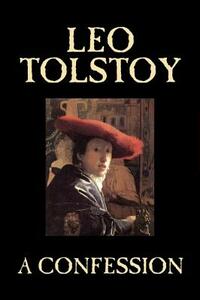Take a photo of a barcode or cover
dark
emotional
reflective
sad
fast-paced
I loved it (the first 70% maybe) and than I hated it. WHY DID IT HAVE TO END LIKE THAT???
This book has given me a 6 month and counting existential crisis, didn't agree with his religious take-aways at the end but enjoyed hearing his point of view anyway.
challenging
dark
reflective
slow-paced
Read this at, what I didn’t realize, would be the perfect time for me. Questions of habitually following aspects of religion while struggling to find my own truths. A very cyclical way of thinking of moral guidance and picking which practices work to make sense of your world. Maybe everyone goes through this in some way, shape, or form but to read through the duality of believing in a higher power to wanting life to end was very… comforting I suppose
Lots of thought-provoking philosophical arguments, it’s nice to see the author’s journey through different beliefs (yes he does contradict things he said earlier as the essay progresses). It does have the tone of “I’m a smart educated rich man so I must be right”, he momentarily seems to appreciate the simple people’s wisdom yet still is not satisfied and quickly forgets that perspective. The book ends quite abruptly and you’re left not really knowing what the conclusion was, the prologue does not really help much.
"the fourth means of escape is that of weakness. it consists of continuing to drag out a life that is evil and meaningless, knowing beforehand that nothing can come of it. the people in this category know that death is better than life, but they do not have the strength to act rationally and quickly put an end to the delusion by killing themselves; instead they seem to be waiting for something to happen. this is the escape of weakness, for if i know what is better and have it within my reach, then why not surrender myself to it? i myself belong in this category."
this book was a sold 5 ⭐️ about 74 pages in. the last 30 pages... not so much. i hate a book so well done with an inconclusive / dissatisfying ending
this book was a sold 5 ⭐️ about 74 pages in. the last 30 pages... not so much. i hate a book so well done with an inconclusive / dissatisfying ending
While Tolstoy's writing is extremely clear, it makes little sense to me.
It's easy to point out passages about his declinging mental health and his struggle with everyday life but simultaneously it's just as contradictory. He talks about all of the points that give him joy and reason in life before completely annihilatin his argumentations with a simple negation.
I didn't like it.
It's easy to point out passages about his declinging mental health and his struggle with everyday life but simultaneously it's just as contradictory. He talks about all of the points that give him joy and reason in life before completely annihilatin his argumentations with a simple negation.
I didn't like it.
challenging
slow-paced
dark
emotional
reflective
tense
medium-paced





